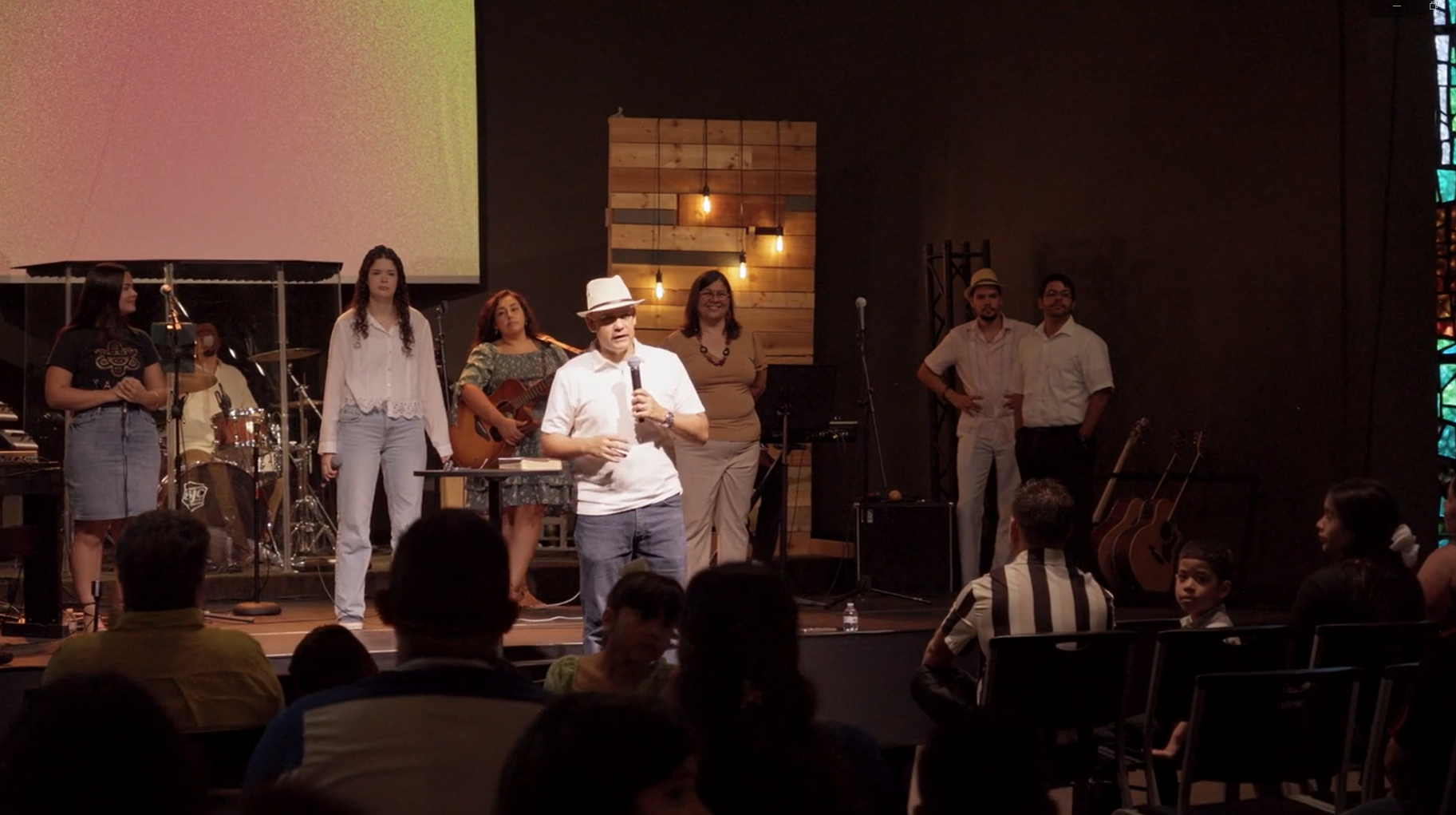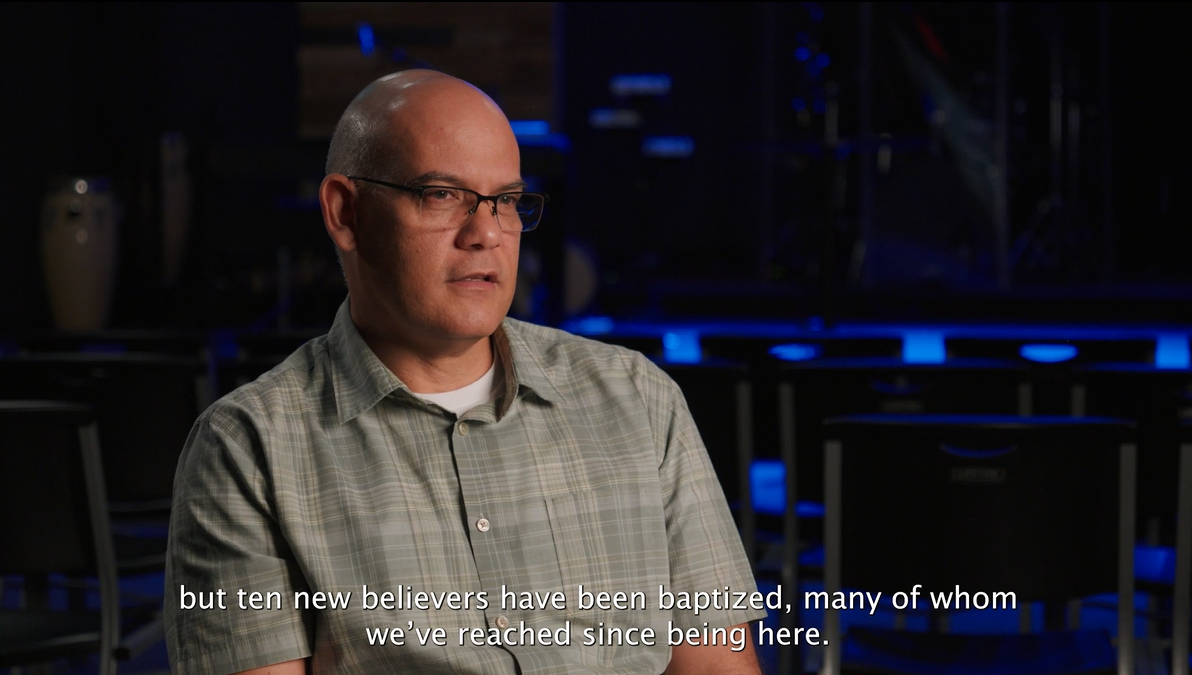¿Qué enseñó Jesús sobre el discipulado?
Pastor Livan Quintana
Marcos (8:34) relata la enseñanza más aguda de Jesús sobre la naturaleza del discipulado. Esta instrucción se aplica a todos (no solo a los doce) que quieren seguirlo e incluye tres elementos: negarse a sí mismo, tomar la cruz y seguirlo. Marcos narra instancias de cada uno de los tres elementos, lo que nos permite ver cómo se ven en la práctica.
A menos que uno tenga un compromiso de vida con Jesús no puede CRECER para SER y HACER Discípulos.
El primero es quizás el más radical. Uno debe negar "no cosas que el yo quiere, sino el yo mismo". Jesús requiere una “negación radical de la propia identidad y autodeterminación". Si quieres seguirlo, bienvenido a la marcha al lugar de ejecución de quien tú eres y quieres.
“Si quieres seguirlo, bienvenido a la marcha al lugar de ejecución de quien tú eres y quieres.”
El segundo elemento del discipulado es tomar la cruz. Esta es la primera referencia de Marcos a la "cruz" y la única referencia fuera del relato de la pasión (15:21, 30, 32). Presagia la forma de muerte de Jesús e ilustra gráficamente el costo de seguirlo, hasta la muerte.
También está presente una nota de compartir voluntariamente la vergüenza de Jesús en Hebreos 12:2. Aunque esta invocación incluye un sentido literal, es decir, estar dispuesto a soportar la muerte física, la amplitud de la experiencia del discipulado en el Evangelio sugiere que también incluye el sentido más amplio y metafórico y sirve para reforzar e intensificar lo que significa negarse a uno mismo.
El requisito final viene en una declaración circular: "Si alguien desea seguirme... que me siga". La idea fundamental es que seguir a Jesús debe ser un proceso continuo. La afirmación de Pedro de que los discípulos han "dejado todo y han seguido" a Jesús (Marcos 10:28) provoca una respuesta positiva (Marcos 10:29-30). Sin embargo, cuando Jesús va a la cruz, Pedro lo abandona.
“El discípulo como imitación de Jesús encuentra su contrapunto en la misión (Marcos 8:35).”
Jesús amplía su triple llamado al proporcionar razones y consecuencias (Marcos 8:35-38). Su declaración paradójica muestra que esta vida de discipulado de autonegación parece una pérdida de vida, pero en realidad la salva. Negar el llamado de Jesús al discipulado, por aferrarse a la vida y evitar su convocación a la muerte, es realmente perder la vida.
Como dijo mi mentor, "El que para quien el camino de Jesús es más importante que su propia existencia asegurará su ser eterno; pero para quien su existencia es más importante que Jesús perderá tanto a Jesús como su existencia". No hay que pasar por alto la insistencia de Jesús en que sus seguidores pierdan la vida no solo por su bien, sino también por el bien del evangelio. El discípulo como imitación de Jesús encuentra su contrapunto en la misión (Marcos 8:35).
El discipulado en forma de cruz, por paradójico que parezca, es el camino a la vida. En términos económicos, ganar el mundo entero no vale nada si le cuesta el alma, y una persona no puede dar nada para comprar su alma. Es decir, es imposible recuperar tu alma una vez que la has perdido. En Marcos 8:38 Jesús pasa de la economía a la escatología mientras habla del fin de la era y de la venida del Hijo del Hombre en gloria. Cuando venga, Jesús se avergonzará de quien se haya avergonzado de él y de sus palabras.
Jesús pasa de predecir su muerte a reflexionar sobre una vida de seguirlo y llevar su propia cruz. Marcos ilustra esto de forma negativa y positiva a lo largo de su Evangelio. Los doce lo modelan negativamente a medida que se acerca la propia muerte de Jesús. En lugar de negarse a sí mismo, Pedro niega a Jesús tres veces. Mientras que los demás no lo niegan verbalmente, tampoco lo siguen hasta la cruz. Ellos también lo abandonan (Marcos 14:50). Sin embargo, también encontramos modelos positivos en las dos Marías y Salomé, que permanecen con Jesús hasta el final, incluso ven la crucifixión "desde la distancia" (Marcos 15:40).
A menos que uno tenga un compromiso de vida con Jesús no puede CRECER para SER y HACER Discípulos. ¡Eso explica muchas cosas! ¿Entiendes?
Livan Quintana, Iglesia Bautista Vida en Cristo
Pastor Livan Quintana
What Does Jesus Teach about Discipleship?
Mark (8:34) recounts Jesus' most insightful teaching on the nature of discipleship. Jesus teaches his disciples three things: deny yourself, take up the cross, and follow him. This instruction applies to all (not just the twelve) who want to follow him. Then, Mark helpfully narrates instances of each of the three elements, allowing us to see what they look like in practice.
Unless you have a life commitment to Jesus, you cannot grow to be and make disciples.
3 Key Elements of Following
The first is perhaps the most radical. You must deny yourself. Jesus requires a radical denial of self-identity and self-determination. If you want to follow him, invite him to rule over your identity and your desires.
“ If you want to follow him, invite him to rule over your identity and your desires.”
The second element of discipleship is taking up the cross. This is Mark's first reference to the "cross" and the only reference outside of the passion narrative (15:21, 30, 32). It foreshadows the manner of Jesus' death and graphically illustrates the cost of following him, even to death.
Also present is a note of willingly sharing Jesus' shame in Hebrews 12:2. Although this invitation is also literal—being willing to endure physical death—the breadth of the discipleship experience in the Gospel suggests that it also includes the broader, metaphorical sense. This idea serves to reinforce and intensify what it means to deny oneself.
The final requirement comes in a circular statement: "If someone wants to follow me...follow me." The fundamental idea is that following Jesus should be an ongoing process. Peter's claim that the disciples have "left everything and followed" Jesus (Mark 10:28) elicits a positive response (Mark 10:29-30). However, when Jesus goes to the cross, Peter abandons him.
The Alternative
Jesus amplifies his threefold calling by providing reasons and consequences (Mark 8:35-38). His paradoxical statement shows that even though this life of self-denial discipleship seems like a waste of life, it actually saves life. Denying Jesus' call to discipleship, by clinging to life and avoiding his call to die, is a truly wasted life.
“ A disciple is an imitator of Jesus who finds his work in the mission (Mark 8:35).”
As my mentor said, "He who for whom the way of Jesus is more important than his own existence will secure his eternal being; but for whom his existence is more important than Jesus will lose both Jesus and his existence." Not to be overlooked is Jesus' insistence that his followers lose your life not only for your sake but also for the sake of the gospel. A disciple is an imitator of Jesus who finds his work in the mission (Mark 8:35).
Cross-shaped discipleship, paradoxical as it may seem, is the path to life. In economic terms, gaining the whole world is worth nothing if it costs his soul.It is impossible to recover your soul once you have lost it. In Mark 8:38, Jesus moves from economics to eschatology as he speaks of the end of the age and the coming of the Son of Man in glory. When he comes, Jesus will be ashamed of those who have been ashamed of him and his words.
Jesus goes from predicting his death to reflecting on a life of following him and carrying his own cross. Mark illustrates this negatively and positively throughout his Gospel. The twelve disciples model it negatively as Jesus' own death approaches. Instead of denying himself, Peter denies Jesus three times. While the others don't verbally deny him, they don't follow him to the cross either. They also abandon him (Mark 14:50). However, we also find positive models in the two Marys and Salome, who remain with Jesus to the end, even viewing the crucifixion "from a distance" (Mark 15:40).
Unless you have a life commitment to Jesus, you cannot grow to be and make disciples.
That explains a lot of things! You understand?
Pastor Livan Quintana, Iglesia Bautista Vida en Cristo
Photo by Small Group Network on Unsplash







